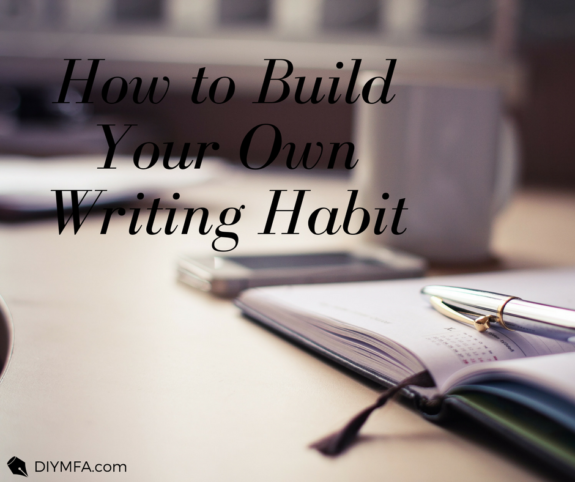A lot of people like the structure of a traditional MFA program because it gives students rigid deadlines that they must meet; their grades depend on it. There are also writing challenges (such as NaNoWriMo) that give a similar motivation to get your butt in the chair and write. But what if we don’t have this kind of structure built into our writing lives? Well, that’s when we have to do it ourselves.
One of the fundamental concepts behind DIY MFA is that the program starts with you. All the creativity, effort and success comes from and goes back to you. Sure, I can show you some options or suggest some places to start, but ultimately, you are the driving force behind your own DIY MFA experience. All I’m doing is helping you get started, setting you on the road to your destination. You have to drive the car.
And that can be kind of scary.
After all, it’s easy to follow instructions and work within an established framework, but do-it-yourself doesn’t work that way. It can be terrifying to forge your own path, and sometimes structure can be comforting, even for us free-spirited creative types. So what do we do when there is no structure? We develop a writing habit. And how exactly do we develop and nurture this habit? Here are some easy tips:
1) Take baby steps.
Try not to push yourself too hard at first because if you do, you’ll be more likely to face burnout later on. The goal is for your writing habit to be sustainable in the long run, so don’t go for a huge overhaul. Instead try to make a handful of small, significant changes that will make a big impact on your writing down the road.
2) Give yourself permission to make mistakes.
Building a habit is like being a constant newbie at something. After all, as soon as you get comfortable, you take another baby step toward your goal. This means resting on your laurels is never an option, which is why it’s so important to allow yourself the freedom to make mistakes. Remember that mistakes are inevitable so you might as well learn how to bounce back.
3) It’s OK to have fun.
Many of us have had the idea crammed into our heads that writing is “hard work.” And, that can be the case sometimes, but more often than not, writing is just plain fun. This is why when we start having fun with writing it’s hard to believe we’re actually working. But we are; we’re just having fun at the same time. It’s OK for writing to be fun and just because it feels more like play than work doesn’t make it any less worthy than other vocations. Like fixing plumbing, or doing brain surgery or whatever else.
4) Real writers write when it’s hard.
Writing when it’s easy is, well… easy, but when it stops being fun, you still need to write. The thing that separates true writers from the wannabes is what happens when the writing becomes tough. Wannabes quit when it stops being fun, true writers work through the pain. And when they come out on the other side of the hard times, these true writers are stronger for it.
5) When you fall off the horse, dust yourself off and try again.
Don’t waste precious energy beating yourself up for missing a few days of writing. Just tell yourself “it’s a new day” and start fresh. In the words of the ever-wise Yoda:
All his life has he looked away, to the future, to the horizon. Never his mind on where he was. Hm? What he was doing. (from The Empire Strikes Back)
The point is, if you’re always focusing on yesterday or tomorrow, you can’t focus on what you’re doing right now. Rather than wasting energy thinking about writing that could have been or is still to come, just think about the writing you need to do right now. Write. Now.
6) Find out what’s causing writer’s block.
If you have a string of bad writing days, take a few moments to reevaluate and figure out why that might be happening. Maybe you’ve been over-stressed or over-tired. Maybe you’ve got a lot on your plate right now. Think about how you can adjust your writing habit to account for the hurdles you’re facing. Once you’ve come up with a plan, let go of the past and move forward toward your goals.
7) Take the day off, now and then.
And when you do, don’t spend the whole time feeling guilty because you’re not writing. If you need a day off, make a conscious decision not to write, then go about your life.
In the end, it’s all about being a more mindful writer. Don’t let the past and future moments dictate whether you’re able to write in the present. Learn from past experiences or mistakes but don’t let them haunt you.







